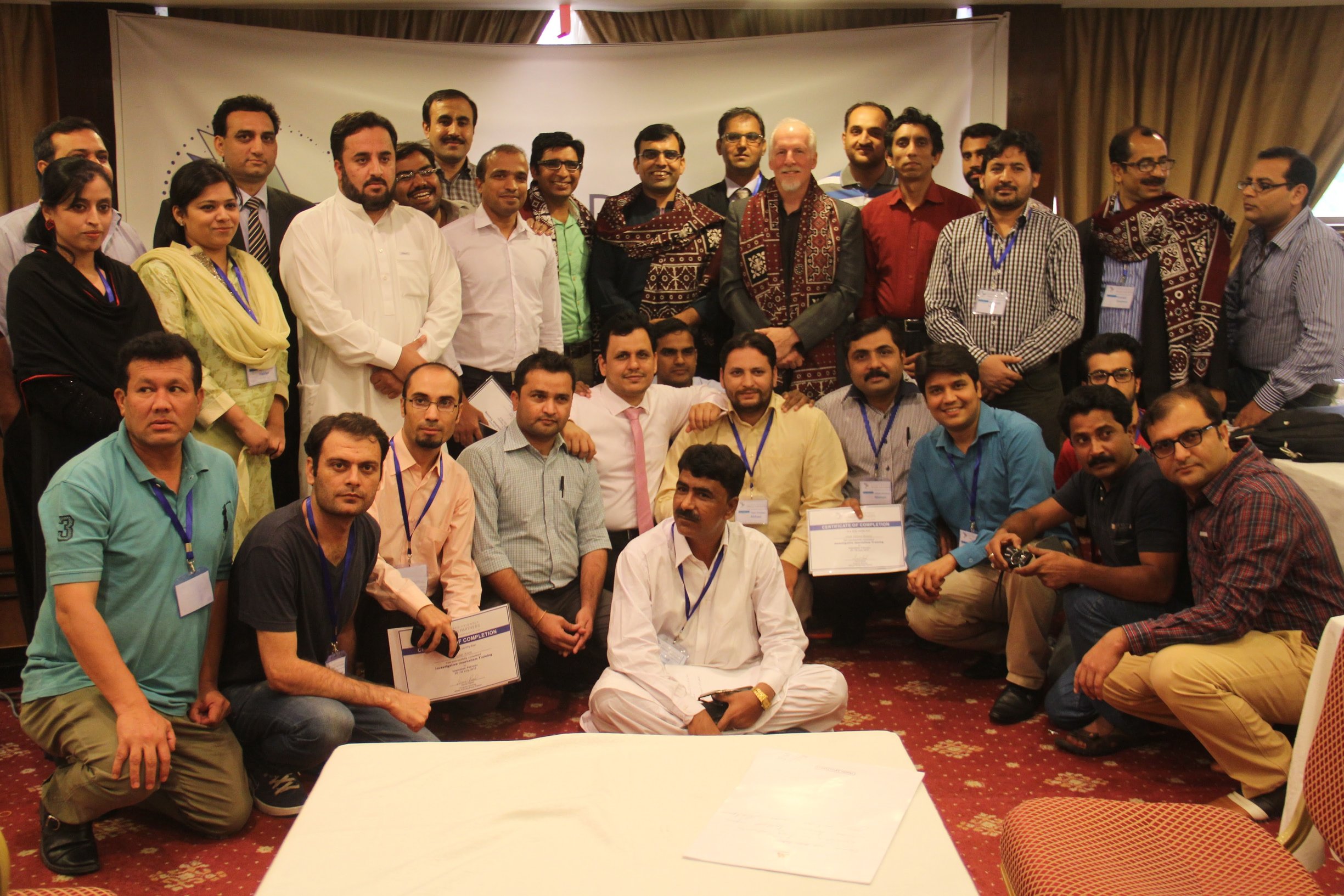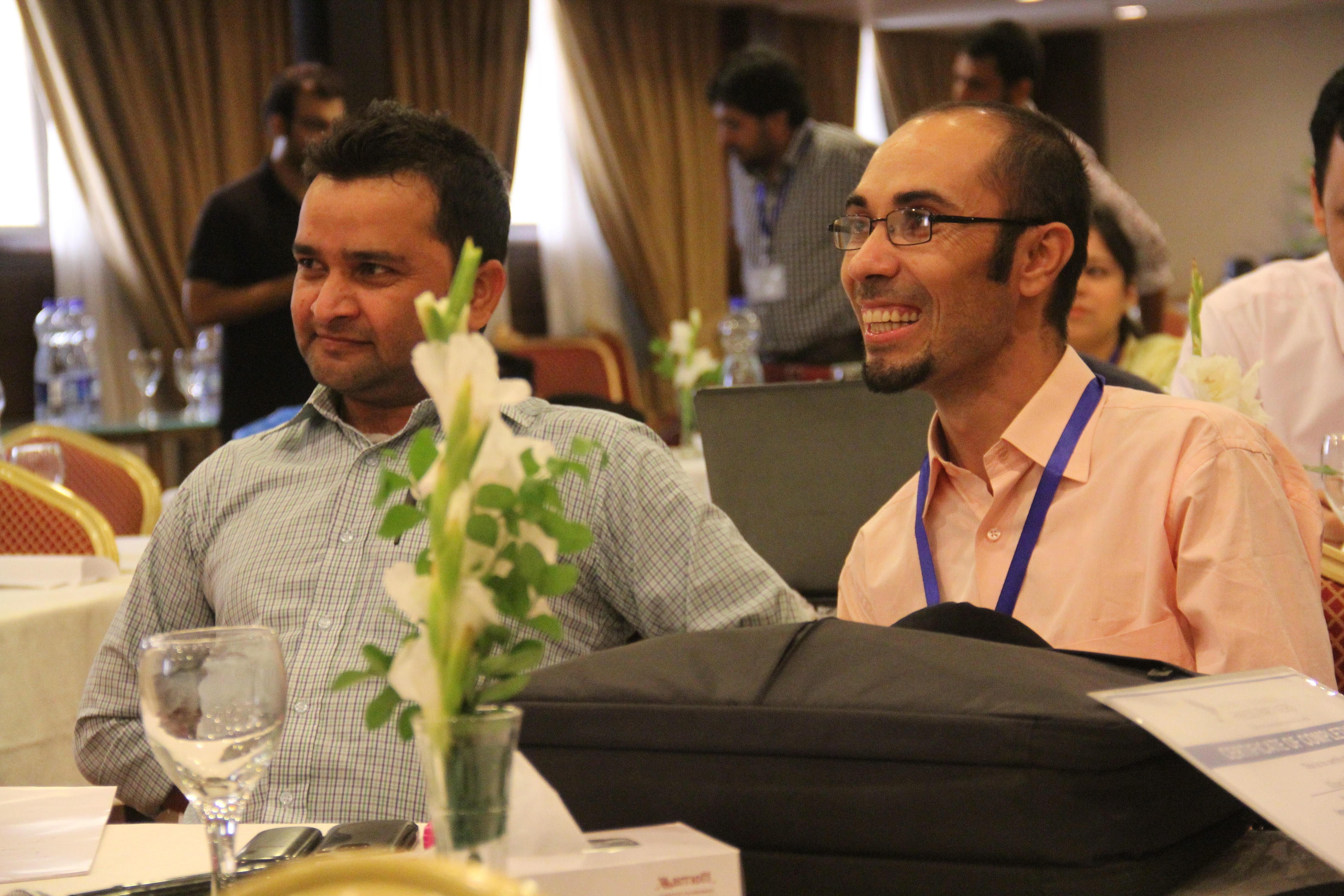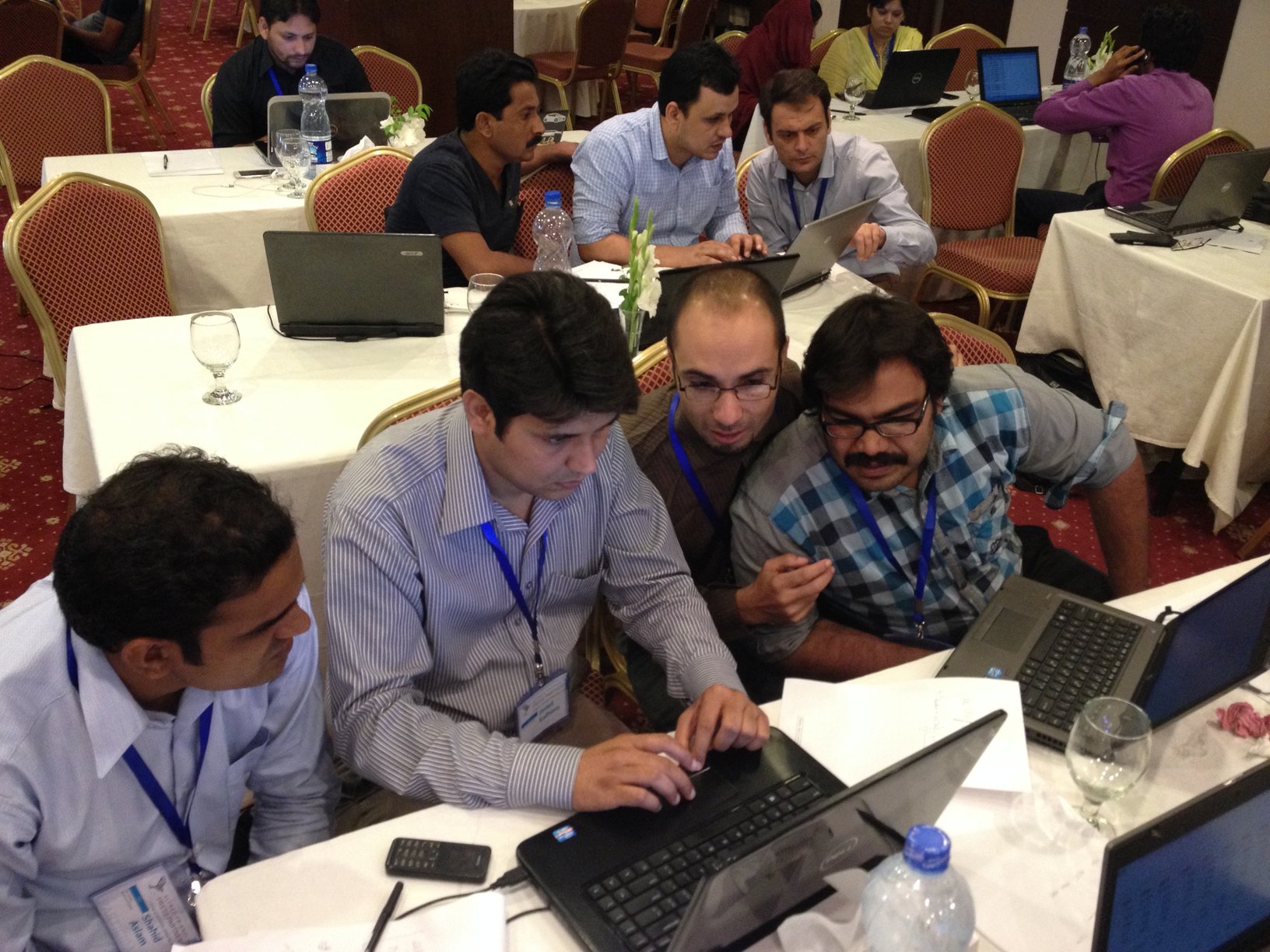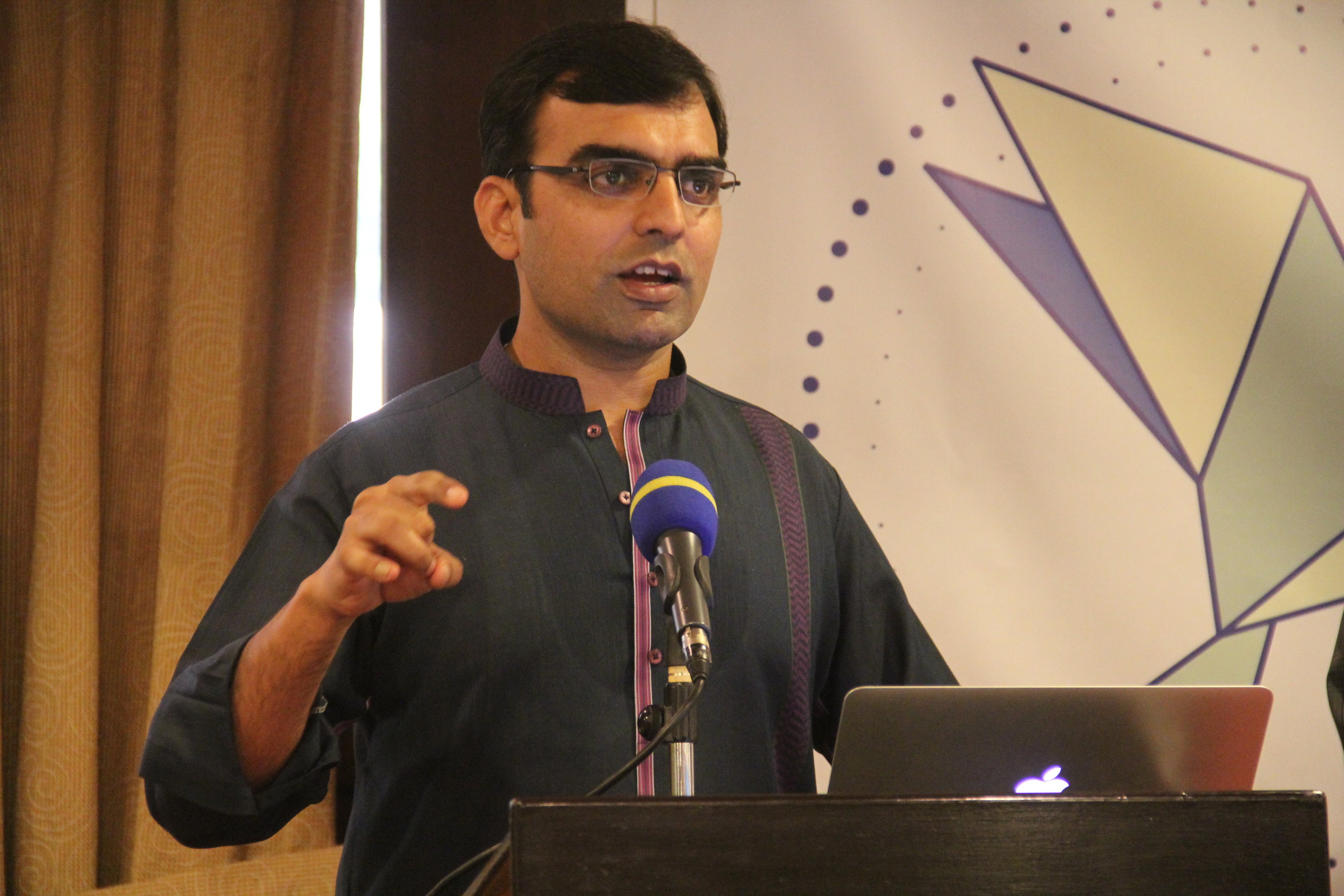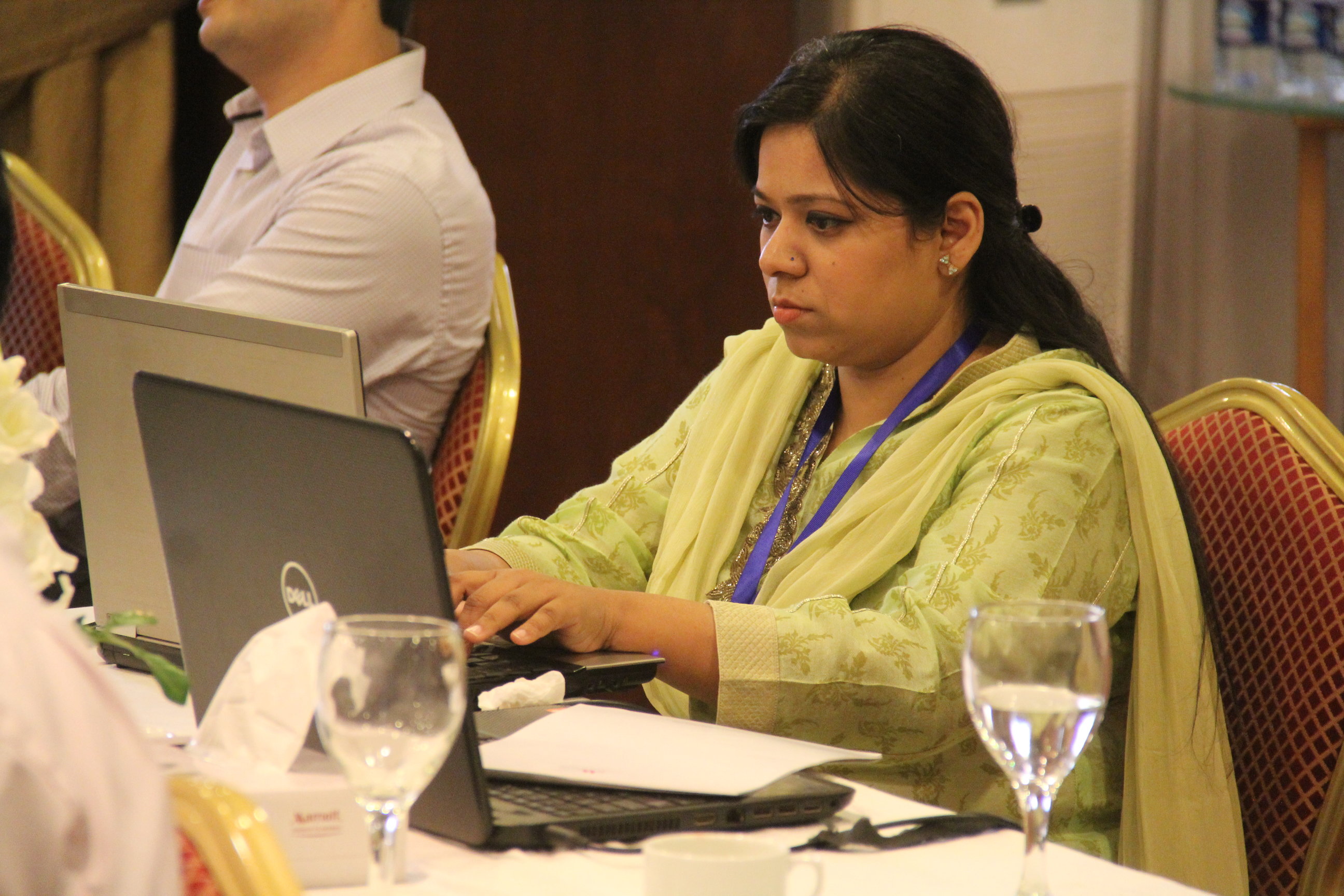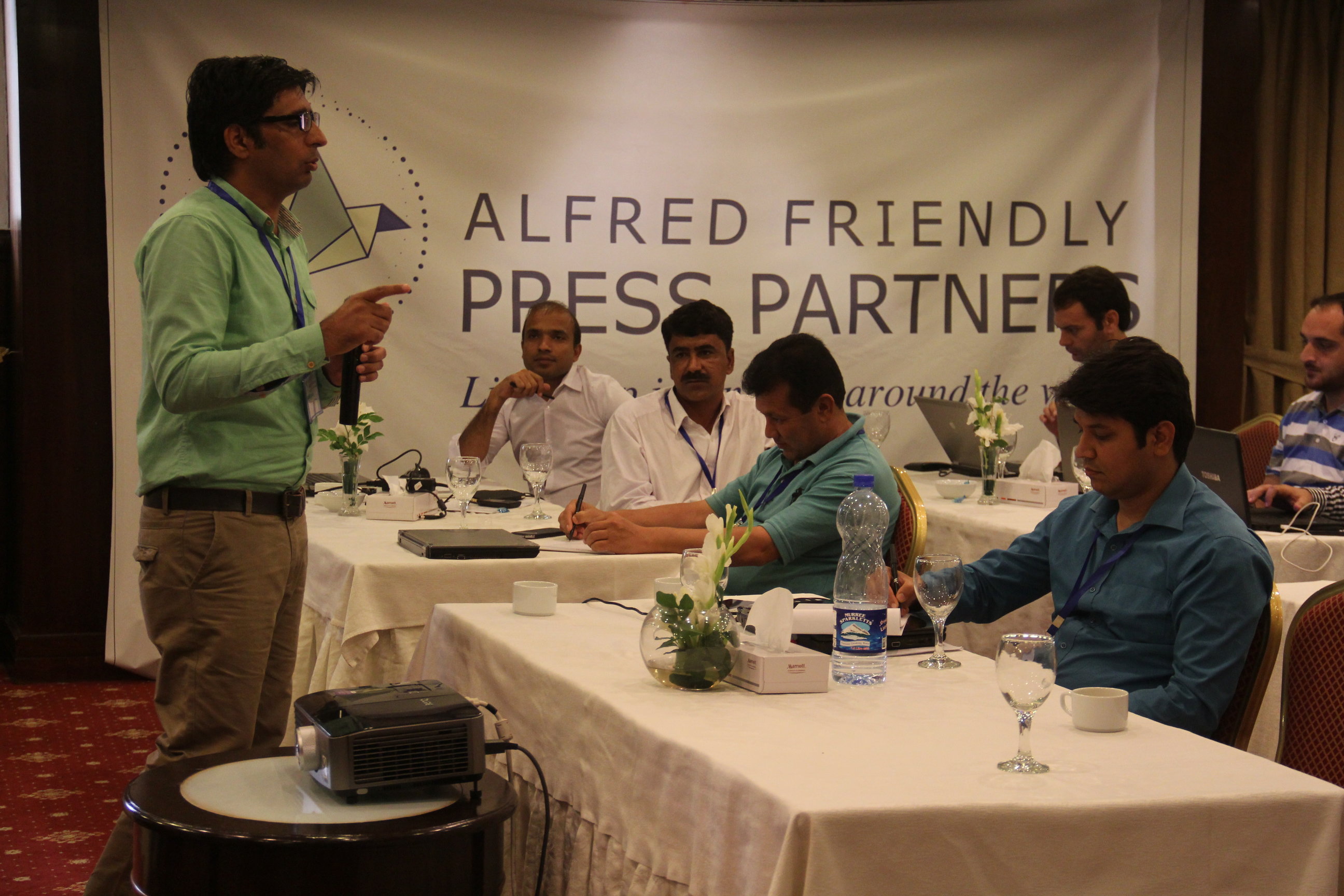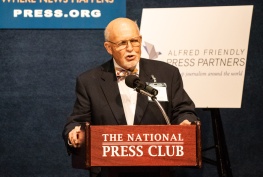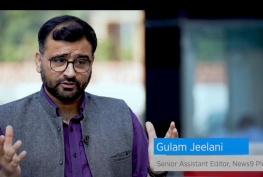Hands-on model with Pakistani, U.S. coaches makes quick impact

Mark Horvit gestures to a journalist from Karachi as he helps the group learn how to use Excel spreadsheets.
Thirty Pakistani journalists learned effective investigative reporting techniques during a weeklong training seminar in Islamabad, and participants quickly used their new skills to produce news articles intended to influence public policy and hold institutions more accountable.
The training was led by Mark Horvit, executive director of Investigative Reporters & Editors and the National Institute of Computer-Assisted Reporting (NICAR), and Umar Cheema, a reporter for The News in Islamabad, a board member of the Global Investigative Journalism Network and co-founder of the new Center for Investigative Reporting in Pakistan. The workshop used a learn-by-doing approach and included data specific to Pakistan, such as population counts and government contracts.
After the conference, Fakhar Durrani, a reporter with The News International in Islamabad, analyzed data from Pakistan’s National AIDS Control program and other national and international agencies. Durrani found that the number of people living with the immunodeficiency virus that causes AIDS is actually twice as high as the government’s official figure.
“This is my seventh story using the data after the workshop and I really feel now I am enjoying my reporting,” Durrani said a few weeks after the training conference ended in August. “The workshop no doubt was very helpful for me as I learned the techniques and skills which were totally new for me.”
The training conference leveraged the experience of five Pakistani journalists who went through the Alfred Friendly fellowship program, including three Daniel Pearl Fellows. They were able to localize the lessons taught by the U.S. trainers, an aspect that participants cited as a key reason for the success of the conference.
Co-trainers were Aoun Abbas Sahi, an Islamabad TV station bureau chief who moderated daily presentations of case studies by Pakistani investigative journalists, and David Reed, AFPP’s program director and an educator with 25 years of experience with The Associated Press and Radio Free Europe.
“We decided to make this training program a unique example,” Cheema said during the closing ceremony. “ Many trainings have been held in Pakistan, and I’m not in the knowledge of any training that has been held in this way. It was so amazing and full of learning.”
The 62 Pakistani journalists who applied for the training were required to submit samples of their best work along with ideas for investigative news stories for their publications. A selection committee picked 30 participants, divided evenly between experienced and relatively inexperienced journalists, so they could also learn from one another during the hands-on training. Durrani, who has two years of reporting experience, was the most productive trainee, but several other participants also shared their subsequent investigative stories.
Cheema also honed his skills at the training conference, and wrote in an email shortly afterward about his story that revealed labor union leaders leading a strike related to tax policy were failing to file personal income tax returns. “It was based on data that helped me confront the traders, provoking them into confession,” he said.
The participants learned the latest trends in investigative reporting, data journalism and tools, using spreadsheets for reporting, web tools and data visualization. They also learned or enhanced their skills in finding international data and getting information out of governments.
Pakistan is one of the most dangerous places in the world to practice journalism, and several participants gave personal accounts of being attacked or threatened with violence by people trying to restrict their reporting.
In 2010, after writing articles that were critical of the military and intelligence agencies, Cheema was abducted by men in commando uniforms and tortured. After his release, Cheema ignored their threat to attack him again unless he stopped “writing against the government.”
The trainers also talked about how using solid, impartial data in their investigative stories can help insulate journalists, or provide cover when they start getting flak for their articles.
Khalid Khattak, another Daniel Pearl Fellow, presented a case study about his efforts to use Pakistan’s new right to information law to pry information out of the national department of education. Zahid Gishkori, an AFPP fellow from the Class of 2014, shared tactics for successfully using social media in the reporting process. During these kind of sessions, there were free-wheeling discussions when participants shared their experiences and learned from one another.
During the certificate-presentation ceremony, many participants said this was the most effective journalism training conference that they had ever attended.
“I have attended dozens, and this was really the most relevant workshop,” Waseem Abassi, an investigative reporter for The News, said. “There were great networking opportunities and I have learned a lot from our own colleagues. The tools we now have — we are looking forward to use them and produce better stories.”
“It was a great and insightful experience for me, particularly the use of data journalism,” Sarah Haider, a sub-editor and feature writer for The News International in Karachi, said.
Cheema said learning about the technology and tools together will help their efforts to form an active network of investigative journalists in Pakistan.
“I’m recalling what Nelson Mandela said — if you speak to a person in a language he understands, that goes to his head. If you speak to a person in his language, that goes to his heart. And now we share the same language and we can understand each other.”Sahi said a key indication of that success was the fact that all 30 participants attended each and every session, from day one through day six. They said there usually are dropouts during journalism training conferences. “As a participant and as a trainer, it was really the best.”

